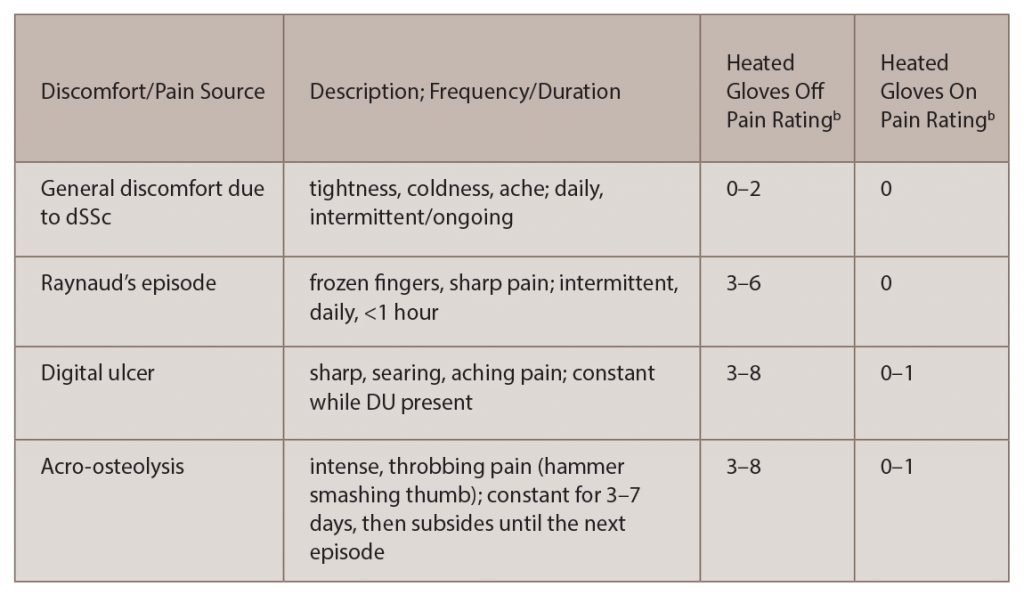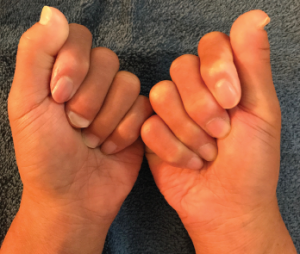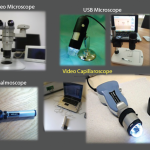Raynaud’s phenomenon in scleroderma or systemic sclerosis (SSc) is associated with significant discomfort and functional disability, especially in the presence of digital ulcers.1 Having lived with diffuse systemic sclerosis (dSSc) for nearly a decade, I can attest to this.
It has been my experience that the hand pain and dysfunction in dSSc stems from Raynaud’s episodes, acro-osteolysis, digital ulcers, and the general discomfort and swelling that comes with the disease (see Table 1), all of which have been associated with vasculopathy and impaired circulation to the digits.2-6
Interestingly, all four types of pain are decreased or completely relieved while I wear battery-operated heated gloves (see Table 1), even without pain medication. In addition, wearing the gloves decreased the swelling in my fingers to the point that I can now make a fist, which was impossible prior to continuous (more than six hours per day) heated glove use (see Figure 1). Pain medications often mask the symptoms, but they don’t address the source, and one can take only so much aspirin and amlodipine or other vasodilator before the side effects outweigh the benefits.

(click for larger image) Table 1: Digital Rest Paina with dSSc & Pain Rating with & without Heated Gloves
a. Pain rating is higher for each category when using hands/fingers for tasks.
b. Ratings are based on authors 2012-17 experience.
Numerical Pain Rating Scale: 0=no pain; 10=worst pain imaginable

Figure 1: The first and second digits still lack full flexion range of motion. However, the remaining digits can flex into the palm to make a fist, which was not possible prior to continuous heated glove use.
Heated gloves, therefore, may be a beneficial nonpharmaceutical adjunct in the management of hand pain and dysfunction in patients with SSc.
In “Thumbs Up for Heated Gloves” (The Rheumatologist, October), the continuous use (8–16 hours/day) of battery-operated heated gloves during the winter months decreased four types of hand pain (see Table 1), increased range of motion, improved sensation and increased hand and overall function in a patient eight years post-dSSc diagnosis. In addition, the patient did not develop an ulcer on the finger that had had a recurring ischemic ulcer the previous four winters. This ulcer-prevention potential of heated glove use warrants further investigation.
In the meantime, however, can continuous use of heated gloves decrease pain and improve function in your patients? Because a key tenet of Raynaud’s and scleroderma management is “cold avoidance,” I believe other patients with dSSc could benefit. However, there are several considerations.3


